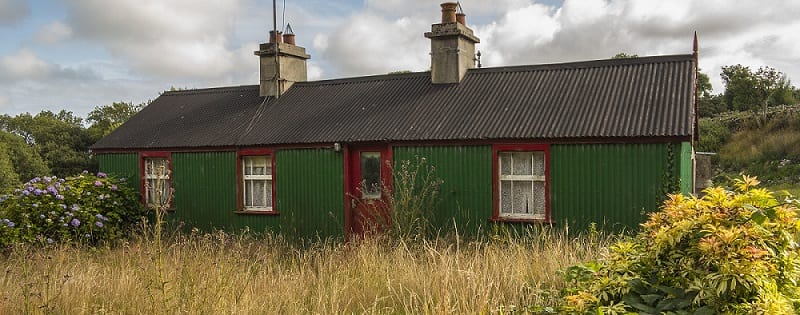Those home improvement tv shows make buying and selling real estate look so easy, don’t they? You find a dirt-cheap property that needs some minor fixing up, take a sledgehammer to the ugly 1970’s era cabinets and replace them with inexpensive open-concept shelving. Pry up the sheet vinyl floors and rip up the ugly stained carpet, put in some engineered Pergo. Throw a trendy paint color on the walls. Put it up for a rental amount that covers the monthly mortgage and renovation loan payments, or sell it at market cost for a nice profit.
Not so fast. Those shows cram four to six months of renovations into a 30 minute show after all. They can’t possibly cover the finer details of permitting problems, money management, foundation issues, and asbestos and mold remediation that can all be very real possibilities for even the most seasoned professional. Heck, even Chip and Joanna Gaines, the super popular HGTV darlings, got hit with a $40,000 fine from the EPA for an asbestos remediation goof up.
If you’re thinking of buying a bargain property, but you’re a novice when it comes to the whole process, consider these tips before you get started.
Buy the Worst House on the Block
Find out the comps for the neighborhood you’re considering, and make sure the house you’re buying is attainable at 20 – 25% less than properties that are similar in square footage and number of rooms. Your goal is to make a 10 – 20% return on your total investment – the cost of the house plus repairs.
This will give you enough cushion in your budget to pay for the renovations needed to bring the property up to snuff with the rest of the community, and still realize a profit on rental income or eventual re-sale.
Know the Difference Between Cosmetic and Structural Problems
Look for a house with cosmetic, not structural, problems. Cosmetic problems – ugly, marked paint, worn carpeting, poor quality cabinets and appliances – can be easily and often inexpensively fixed. Structural and large systems issues like foundation problems, poor framing, wood rot, and outdated HVAC, electrical, and roofing can translate to huge, unexpected costs.
Don’t Over-Improve!
Remember that even with cosmetic issues, be careful not to over-improve a house. Know what the rest of the neighborhood has and don’t get emotionally invested in a property that is ultimately a business transaction. If you to put in top of the line granite and oak wood flooring when every other home has lesser quality fixtures, you’ll still only be able to command the going rate for rent or purchase.
Make a Budget, and Stick to It
This seems pretty simple but it’s easy to get carried away when you’re renovating.
Start by understanding your final purchase cost once all inspections and closing fees are included. Know what you can reasonably expect to earn in rental income, and settle on a renovation budget that will allow you to recoup your expenses quickly. Don’t forget to build in a cushion for unexpected expenses.
Have a Good Contractor on Speed Dial
These days, when construction is booming, it can be difficult to find a good contractor who’s available more than three months out. Having a trusted partner who is willing to come out and complete small jobs is a huge boon. Interview prospective professionals and fully research reviews on them before you ever think about buying that house. Don’t let them cherry pick the reviews for you. Ask them to give you a list of their last ten customers / projects in chronological order and talk to each of them to get a real gauge on both the positives and negatives.
Make Sure You Have Time to Devote to the Project
You might be doing the renovation work yourself, or you might be outsourcing all of it to a professional. Either way, you’ll need time available to devote to the projects you’ll be taking on and to handle any questions or emergencies that come up. And you need to be able to do it within a time frame that gets the property back on the market quickly so you can start making money.
Talk to a Professional
There’s a lot to consider when starting the process of buying an investment property, particularly if your strategy is to flip a fixer upper. Oak City Properties offers Investment Acquisition Services to help guide you in determining your investment property goals, identifying and evaluating potential properties for potential ROI, and funding options. Contact us today for more information.

